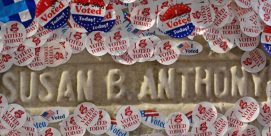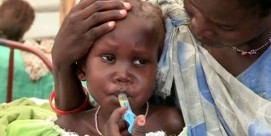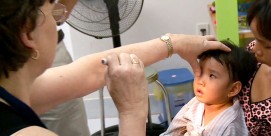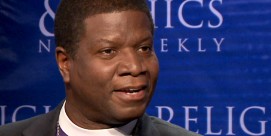In This Episode << SLIDE LEFT TO SEE ADDITIONAL SEGMENTS
Haiti Unrest
BOB ABERNETHY, host: Violent demonstrations broke out in Haiti this week over allegations of fraud in the recent presidential election—this on top of the growing cholera epidemic. Several relief organizations say the unrest has been preventing them from treating the thousands of Haitians suffering from the illness. More than 2,000 people have died and more than 100,000 have become sick. Our managing editor Kim Lawton has been talking to relief workers in Haiti. Kim, what do they tell you?
KIM LAWTON, managing editor: Well, they’re telling me that the situation is a lot more difficult than many people here may realize. The political unrest, protests in the streets, sometimes violent clashes have really created a situation where it’s hard for people to get around. Many of the relief groups and the faith-based groups have been on lockdown for several days in Port-au-Prince, but also in other cities around Haiti.
ABERNETHY: Lockdown meaning they don’t go anywhere?
LAWTON: They are told don’t go anywhere. Don’t go on the streets. And I understand that you can’t even get anywhere if you try to get on the streets. There are these big barricades and even stones and rocks. Sadly, Haitians are dragging rubble from the earthquake that still hasn’t been cleared away—they are dragging that into the streets so people can’t get around, which means the workers can’t get to the cholera clinics. They can’t get to the rebuilding projects, and it just puts all of that help further back.
ABERNETHY: And as you indicated it does seem as if it’s worse than a lot of us had thought.
LAWTON: Well, as you know I was supposed to be down there right now with a TV crew for our program, and our flight got cancelled. There was an Episcopal delegation with the presiding bishop of the US Episcopal Church. Their flight got—their plans got canceled, postponed anyway. They are trying to figure out what to do. A lot of people can’t come and go because the airports have been closed. That’s how bad the situation has been.
ABERNETHY: Yeah, and all this pent-up furry from a year ago when the earthquake—almost a year—when the earthquake hit, it just must have magnified the response to the election results.
LAWTON: Well, some of the people I have been talking to say this protest and all of this violence isn’t just about politics and the election. It’s about the frustration of the people and their plight so long with, you know, not having a place to live. A million-and-a-half people still living in tents and tarps, now the cholera epidemic, and they’re just very frustrated.
ABERNETHY: Kim, many thanks.







